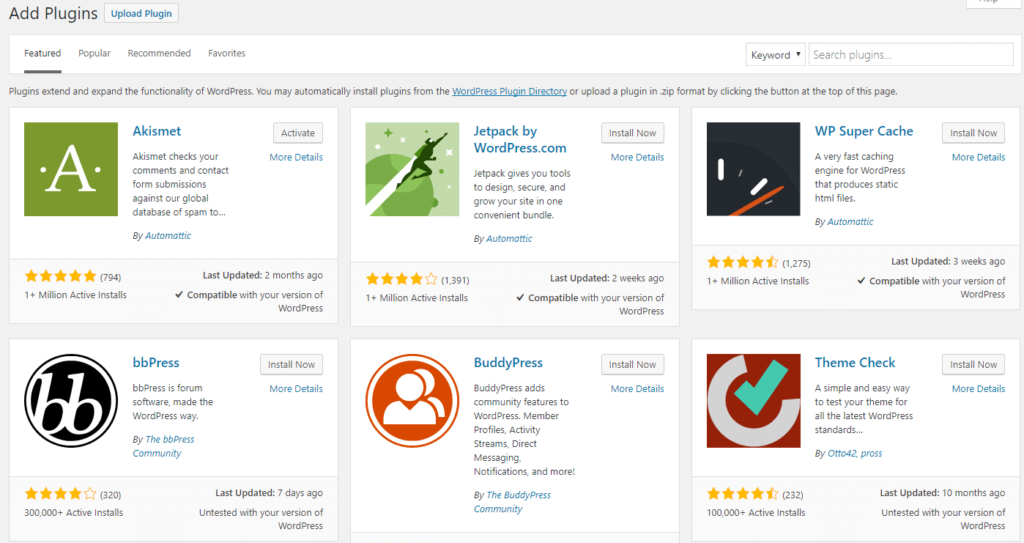Is WordPress easy to learn? Now, in 2022? It has evolved dramatically since its launch and today, this blogging platform offers so much more than just a blog, but still, WordPress is easy to learn!
If you don’t understand how WordPress works or the differences between the two versions of WordPress, it can appear perplexing and complicated. In this essay, you’ll learn all you need to know about WordPress, including how it works and whether it’s simple to understand. Let’s get this party started!
WordPress is simple to learn… as long as you have a helpful guide to show you how.
Yes, WordPress is simple to learn. WordPress is easy to use, so mastering it is as simple as learning how to utilize its point-and-click interface. It will also not take you long to learn these WordPress principles. And as you go deeper and deeper into WordPress, you’ll discover that it evolves and extends alongside you, allowing you to learn as much as you want about WordPress.
And if you’re just starting out with WordPress, you may feel perplexed or frustrated. This is why it’s critical to learn the fundamentals of WordPress early on. Are you sure you understand what WordPress is and how it works? If not, let’s talk about it…
What Exactly Is WordPress?
You’ve undoubtedly heard of WordPress. But do you understand what it is and why it is so popular?
WordPress is most likely best known for blogging. At least, that’s how it began in its original incarnation. However, it has expanded far beyond blogging and can now run a wide range of websites. This is because WordPress, at its heart, is a robust CMS (Content Management System). Workgroups or people of any skill level can swiftly and simply submit consistent-formatted content to their website. There is no need for any coding or technical knowledge.
But where WordPress really shines is in its customizability and versatility. In its early days, WordPress gained popularity not just because of its ease of use but also because it is open source. This implies that more technically-savvy users can delve into WordPress’s source code and alter it in various ways. Furthermore, a large developer community has sprung up around WordPress, creating and publishing a plethora of add-ons and extensions that enhance the platform’s capabilities.

Because of WordPress’s open-source philosophy, ease of use, and massive developer community, you and I can use it to run a wide range of websites, from personal blogs to large e-commerce sites.
Plugins and themes are two significant areas that contribute to WordPress’s power. Let’s have a look at them one by one.
What Exactly Are WordPress Plugins?
In a nutshell, WordPress plugins are add-ons that enhance the behavior and capabilities of your website. Some plugins can do everything from contact forms and photo galleries to running an online store or membership site.
If you wish to highlight something specific on your website, you can do it by using a WordPress plugin.

Some plugins will be visible on the front-end of your WordPress website, where visitors can interact with them. A contact form is an excellent example. Plugins are sometimes only used behind the scenes to manage things like site security and data backups.
And, astonishingly, there are tens of thousands of plugins accessible, with new ones being produced on a regular basis. The majority of plugins are free, but others are premium (or purchased). If a plugin is freemium, you can get a basic version of the plugin for free, but if you want more features, you have to buy the full version.
If you can’t find a plugin that does what you’re looking for, you could hire someone to create a bespoke plugin for you. You might also create your own plugin. I’ve hired developers to make custom plugins for me in the past, and the great thing about this is that you can get precisely what you want, no matter what they are.
That’s all there is to it when it comes to WordPress plugins. There’s almost certainly a plugin for it if you can think of it. What about the other important part of WordPress, themes?
What Exactly Are WordPress Themes?
Themes are another aspect of WordPress that you should be aware of. Themes are in charge of all of your website’s design components. So your WordPress website’s theme controls everything from fonts, colors, stylings, page layouts, and more.
So, if you’re into a design like I am, you’ll want to learn more about themes and how they function.

The themes are great because they operate like templates; simply install and activate a new theme, and your website’s entire look and feel change instantly. Since WordPress is so popular, millions of themes have been created and made available for usage. Most plugins are free, but others require payment.
The best themes allow you to personalize and personalize them. Hestia is an example of a trendy, adaptable theme that will allow you to personalize it. Other themes act more like frameworks or website builders. A fantastic illustration of this is StudioPress Genesis, one of the most influential and popular WordPress frameworks.
You might even delve deeper into the realm of WordPress themes and learn how to create your own. And it’s a lot simpler than you think. Elementor, a page builder plugin, is an excellent place to start. Elementor has a very easy-to-use visual drag-and-drop interface that lets you quickly make layouts and designs.
That’s it for WordPress themes. And now that you’ve learned a little more about WordPress, I’m sure you’re wondering…
Is WordPress Simple Enough for Beginners?
One of the best things about WordPress is how simple it is to learn. WordPress itself is not difficult to learn. In fact, you may learn the essentials in a relatively short period of time. This is one of the main reasons why WordPress has become so popular.
Prior to the advent of WordPress, building websites was a time-consuming and difficult process. Websites can only be built by designers and developers who know HTML, CSS, and other rules.
And while we had web design software like Dreamweaver long before WordPress, they were more like word processors. You’d select File > New, and then you’d have to start from scratch every time.
However, WordPress has mostly removed these technical impediments. To make and run a website, anyone can use WordPress, even if they only know a little bit about computers.

And, since WordPress is a CMS (content management system), you don’t start with a blank page. You begin with a completely built website that is ready for your content and adjustments. This simplifies the process of getting your website online.
And here’s the best part: as a newbie to site design and UI, you can keep it simple by sticking to the core features of WordPress. Run your website with the default theme (currently 2022) and add new content as needed. Perhaps that’s all you need to know about WordPress – and that’s perfectly fine! You can also go deeper and deeper into WordPress if you so desire. Perhaps you’d like to learn more about custom theme design. Who knows, maybe you’ll learn HTML and CSS to go along with your WordPress talents! The point is, you can take this as far as you want.
In reality, WordPress may serve as an entryway into the greater world of web design and running online projects in many ways. And as you continue to learn more about WordPress and site design, they will expand and grow alongside you, leading you as far as you want to go.
WordPress themes and plugins are among the most difficult aspects of the platform to learn for newcomers. Because they are relatively unregulated, these can be tough to learn. As a result, it’s a bit of a Wild West out there. As powerful as themes and plugins, documentation might be ambiguous or non-existent.
Installing a new plugin, for example, may require you to fiddle around for a bit as you learn how it works. As a result, there may be some trial and error, which can be annoying at times.
However, this is not a commentary on WordPress. It’s due to a lack of documentation on the part of the plugin or theme developer. WordPress is quite simple to use on its own.
So, with that out of the way, let me go over some of the reasons why you should use WordPress. Let’s take a closer look…
Why Should You Use WordPress?
There are numerous compelling reasons to utilize WordPress. I’ve compiled a list of some of the most compelling reasons to use WordPress. Hopefully, this has helped you decide whether WordPress is right for you.
WordPress is completely free—right out of the box. As in, there is no fee! This is true for both the WordPress.com and WordPress.org versions. (We’ll go through the changes between these two WordPress versions a little later.)
And because WordPress is free, anyone can get started using it right away. However, as we’ll see later, you may incur certain costs depending on how you intend to utilize WordPress. For example, if you wish to run a self-hosted WordPress website, you’ll need to pay for your website’s domain name as well as web hosting. Sit tight because we’ll go over this again shortly. Meanwhile, WordPress is simple for newcomers but powerful for developers: As previously stated, WordPress is a pretty simple platform to get started with. It’s really simple to set up and use. Most web servers include what are known as “1-click auto-installers.”
You won’t need any programming or dev skills to install WordPress; just a few clicks, and you’ll be ready to go. Beginners don’t actually need to know anything about WP coding or web design to use WordPress on a daily basis. WordPress is as straightforward to use as a word processor such as Microsoft Word. You’ll be fine if you have basic computer skills. WordPress has an easy-to-use point-and-click interface, so if you have basic computer skills, you’ll be fine.
On the other hand, WordPress is powerful enough for more technical people to adjust, change, and customize. Developers may go into the heart of WordPress and access its source code. This enables anyone with the necessary skills to totally customize WordPress and make it do whatever they want. This is due to the fact that WordPress is modular and open source.

Consider WordPress to be similar to Lego bricks: anyone can use them to construct whatever they want. You may go into WordPress’s background CSS, JavaScript, PHP, and more if you have the necessary skills. If you wish, you can stay blissfully uninformed of the technical aspects and simply utilize WordPress’s user-friendly interface. Again, this adaptability has made WordPress so popular, and its popularity in 2022 explains it. It can be as big or as tiny as you want, as technical or as basic as you want.
Control the appearance of your website with ease: Themes are in charge of the design of your WordPress website, as you well know. Consider the themes to be the design that sits atop the WordPress CMS system. Dressing up is a theme. It only takes a few mouse clicks to install a new theme on your website. When you activate a new theme on your website, all of your old content instantly conforms to the new layout — the entire look of your website transforms in a matter of seconds. Remember that, in addition to using free or commercial themes, you may hire someone to create a custom theme for you or even learn how to create themes yourself.
WordPress allows you to build any kind of website you want: to its strength and versatility, WordPress can be used to develop and run any type of website you can think of. Other web design platforms and software are frequently limited and incapable of handling many types of websites. Even while WordPress was created as a blogging tool, it quickly grew to handle a wide range of different website types.
WordPress can now be used to create any type of website, from a simple 1-page personal site to a portfolio website to showcase your work, to a comprehensive online store, a news website, or even a large corporate site. WordPress can handle anything you can think of!
Easily expand the capabilities of your website: We’ve already mentioned WordPress plugins, so you’re aware that they expand the capabilities and functionality of your website. So, perhaps you’d like to include a portfolio display or a contact form on your website. Perhaps you’d like to add an e-commerce shopping cart to your site, or you’d like to create a full membership website. Plugins enable all of this and much, much more. There are already over 50,000 plugins available, so you have plenty of alternatives. Remember that, just like with themes, you can always employ a developer to create something customized especially for you if necessary.
At its core, WordPress is a content management system (CMS): Remember that a content management system is essentially a platform or framework that allows non-technical users to quickly publish content that is subsequently formatted and presented in the same uniform manner. This is ideal whether only one individual is working on a website or an engaged team.
And as previously mentioned, WordPress is a very adaptable CMS. To write and publish content with WordPress, you’ll use its straightforward and user-friendly built-in editor. The good news is that you already know how to use it; it’s that simple! So you don’t need any coding skills or anything else highly technical to get started with WordPress.
WordPress is extensively used and well-liked. WordPress is much more than a site design platform. It is a component of the open-source movement. This indicates that WordPress has a large and devoted user base, both online and offline. WordPress has tens of thousands of developers and millions of users globally. WordPress forums, blogs, workshops, meet-ups, and conferences may be found almost anywhere.
WordPress is now the most popular CMS platform, accounting for approximately 60% of the market. And, astonishingly, WordPress powers 30% of all websites on the internet. So you’re in excellent company with WordPress!
All of this implies that finding support and assistance if you get stuck with WordPress is simple. You can get solutions on YouTube, forums, blogs, and other widely available web resources. And if you ever need assistance with your website, there’s a plethora of WordPress developers on sites like UpWork.com and Freelancer.com. As a result, being a WordPress user means that you are part of a huge, supportive group.
So these are some of the most important reasons why you should use WordPress. Compared to alternative site design programs such as Dreamweaver, Wix, or SquareSpace, it’s clear why WordPress is so popular.
So, at this point, you’re probably wondering how WordPress works. We’ll get to that later.
What Is the Process of WordPress?
Because of its adaptability, WordPress may be used in a variety of ways. You’ll primarily use WordPress.com (also known as a “hosted option”) or WordPress.org (a self-hosted approach). Furthermore, you can install and run WordPress straight on your PC. However, this third choice becomes more complicated, and I don’t want to cause any confusion because WordPress does not behave like classic web design software, such as Dreamweaver.
Traditional web design software works more like a word processor, with the ability to open, edit, and save files. And using those tools, you’d create a website on your computer and then transfer it to your live web server once it’s finished.
However, WordPress operates in a totally different manner. As opposed to software that runs on your computer, WordPress uses it directly on your live web server. So, with WordPress, you’d enter into your website and work there, live on the internet.
You construct the files that will constitute your website using a standard application such as Dreamweaver. With WordPress, though, it is your website.
WordPress features a front-end and a password-protected backend to do this. Your WordPress website’s backend is where you do all of your work. It is here that you will build new pages and articles, work with photos, and change the look and behavior of your website. The front-end of your website is what your visitors see when they navigate to it. In fact, they may be unaware that your website is powered by WordPress.
So that’s how WordPress functions. It will not be used to open or edit files. Instead, it’s the platform for your website. And keep in mind that, at its core, WordPress is a totally adaptable and expandable CMS. You can’t compare Dreamweaver and WordPress because they are both older ways to build websites. WordPress is a lot more modern.
But how much does WordPress cost? This is a difficult topic to answer because it all depends on how you intend to utilize WordPress. In the following part, we’ll go over this in greater detail.
Is WordPress a free platform?
Is WordPress free? This is definitely a huge topic on your mind. And the answer is, sort of!
As previously stated, WordPress is available in two options:
- WordPress.org
- WordPress.com
Both are free to use right out of the box. However, depending on how you choose to utilize WordPress, you may incur certain expenses.
Fortunately, regardless of how you choose to utilize WordPress, the charges are inexpensive. Here are the specifics:
There are no upfront expenses if you choose to run a hosted WordPress.com website. WordPress.com, on the other hand, has constraints and limitations. WordPress.com websites, for example, incorporate advertising and a branded domain name by default (yourdomain.wordpress.com). To remove these restrictions, you must upgrade to a premium account. We’ll go over WordPress.com’s limits in more detail later.
Self-hosted WordPress websites are free of advertisements and branding, but you must pay for hosting and a domain name. However, as previously stated, these expenses are not irrational. A domain registration costs around $10 per year, and web hosting can cost as little as $5 per month. As a result, the costs aren’t prohibitively high. You may have to pay for things like premium themes and plugins as you go, but these are all your choice.
So, obviously, going with a hosted WordPress.com website is the cheapest option straight away (because it’s free!). However, it’s difficult to predict which option, hosted or self-hosted, will be less expensive in the long run. You’ll need to decide what kind of website you want to run and what you want to do. You can then calculate your long-term costs. Depending on your requirements, even after paying for WordPress.com upgrades, one WordPress flavor may turn out to be less expensive than the other.
But, in my opinion, nothing beats a self-hosted WordPress website. It is simple to find dependable, low-cost hosting. For a few bucks a month, you can have a fully customizable, self-hosted WordPress site with a custom domain and no advertising… running the exact website you want. And if you’re looking for WordPress web hosting options, there are three that I use and recommend. Depending on your requirements, one of these will be ideal. More information is available right here.
For the time being, let’s return to the topic of WordPress’s two flavors,.com and.org, and see which one is best for you.
What Is the Distinction Between WordPress.com and WordPress.org?
Remember that WordPress.com is the hosted version, and WordPress.org is the self-hosted version. Which of these two WordPress flavors is best for you will depend on the type of website you want to develop, your budget, and your level of interest in learning web design.
I’ll explain the differences between WordPress.com and WordPress.org in more detail below.
What Is WordPress.com Exactly?
WordPress.com is a free (subdomain) web hosting service that allows anyone to create and manage a website. As a result, this is referred to as a “hosted version of WordPress.” WordPress.com is a hosting provider that handles everything for you.
WordPress.com is a free, though limited, web hosting service.
As a result, WordPress.com is a straightforward option for non-technical users with few requirements. WordPress.com manages your website for you, so you don’t have to worry about security, technical issues, or site management. Simply concentrate on the content you wish to post online.
In this sense, WordPress.com is more of a publishing platform than a whole website. WordPress.com also makes it incredibly simple to get up and running quickly. Sign up for a free account, and your site will be available on the internet in a matter of minutes.
Setting up to publish content online couldn’t be simpler.
However, not everything is as it appears. WordPress.com, in reality, has numerous limits. As previously stated, your site will have advertising by default, and you must utilize a branded domain name (remember, yourdomain.wordpress.com). Furthermore, WordPress themes and plugins are extremely limited. This implies that your site’s look, functionality, and behavior will be limited. Furthermore, using WordPress.com to run any type of online business can be challenging, if not impossible.
Many of these restrictions can be lifted, but only by upgrading to a paid account, as you might expect.
It’s critical to recognize that WordPress.com is a for-profit enterprise. They generate the majority of their income from advertising and paid upgrades. However, suppose your demands were basic, and you didn’t want any extra capabilities. In that case, you could run your website for free on WordPress.com and focus your time on the content you want to produce.
What Is WordPress.org Exactly?
What about WordPress.org? It is difficult to grasp how to get started with WordPress if you go to wordpress.org. This is because, unlike WordPress.com, which is a commercial site, WordPress.org is a resource/support site for the free WordPress themes and plugins.
WordPress.org, as opposed to WordPress.com, is a resource and support portal.
While you can download WordPress for free at wordpress.org, this is not the best place to get started with WordPress. Instead, you’d start with your host and install WordPress with a single click. This is why this version of WordPress is called “self-hosted.” You are in charge of hosting your own site.
And on WordPress.org, you’ll find a wealth of useful support materials and resources to help you get the most out of this self-hosted version of WordPress. The WordPress Codex, for example, has rich and vast WordPress documentation. You can get all the information you could possibly desire about WordPress’s technical aspects right here.
WordPress.org also hosts the WordPress forums, which serve as a gathering place for the WordPress community. This is a fantastic site for finding answers, troubleshooting issues, and learning about what’s ahead for WordPress.
WordPress.org also serves as a repository for WordPress plugins. There, you’ll find over 50,000 plugins that can help you increase the possibilities of your self-hosted WordPress website. You’ll also find the primary library of WordPress themes, which contains thousands upon thousands of themes for you to select from. Unlike WordPress.com, you can use any theme or plugin with a self-hosted (WordPress.org) website.
In reality, this self-hosted version of WordPress is compelling, adaptable, and unrestricted. You have complete control and ownership of your website here. You are free to use and tweak WordPress however you see fit. In addition, unlike on WordPress.com, you will have complete access to your website’s source code. As a result, if you need to get to the root PHP files, CSS, JavaScript, and even the database that runs your site, you can.
The disadvantage of a self-hosted WordPress.org website is that you will be responsible for registering a domain name and configuring your web hosting. Fortunately, I have tutorials on all of this to assist you. .
So, while a self-hosted WordPress installation gives you more freedom, it does take a little longer to get up and to run. On the other hand, there will be no limitations to what you can accomplish, construct, or run with your website. This is why I recommend that you use a self-hosted WordPress website.
If you want a more in-depth comparison of these two WordPress flavors, see my blog post: WordPress.com Versus WordPress.org: An In-Depth Comparison.
After discussing the differences between WordPress.com and WordPress.org, I’d want to address a few other frequently asked WordPress questions. Let’s start with the one that I’m sure you’re thinking about:
How Much Time Does It Take to Learn WordPress?
Do you want to know how long it will take to learn WordPress?
The good news is that you can learn the principles of WordPress in less than a weekend—perhaps eight to ten hours. It takes very little time to get started with WordPress.
And if you kept working with it, you’d be very comfortable with it after about a week. Again, WordPress is simple to learn because it was created with non-technical users in mind.
Beyond the fundamentals, it really depends on how far you want to take WordPress. Keep in mind that WordPress can be as large or as tiny as you want it to be. This is all you need to know if you only want to know the fundamentals. However, if you wanted to delve deeper into WordPress, you could.
Perhaps you’d like to start creating layouts with a website builder plugin like Elementor. Maybe you’d want to start creating custom WordPress themes or plugins. Getting a handle on these more sophisticated WordPress subjects would, of course, take a little more time.
However, you can get up and running with WordPress rapidly.
Is It Worth It to Learn WordPress?
Is it, therefore, worthwhile to learn WordPress? As it is the most widely used and powerful web design platform today, I believe it is well worth your time to learn.
I have no regrets about learning WordPress; in fact, when I initially started with it in 2009, it dramatically revolutionized the way I constructed websites. When I saw how powerful and customizable WordPress is, I instantly dropped all of my previous web design tools and moved over to it totally. I no longer design websites without WordPress!
Even if you don’t have high technical ambitions—perhaps you’re a hobbyist or simply want to run a few web projects—spending a few hours learning the fundamentals of WordPress is well worth your time. If you’re an employee or a freelancer, learning how to use WordPress will give you a set of valuable and marketable skills.
And the best part is that it doesn’t matter whether you learn using WordPress and Elementor or HTML and CSS. Learn one set of web tools first, then the other set.
So, in terms of WordPress, what is the quickest way to learn WordPress? We’ll get to that later on.
The Most Efficient Way to Learn WordPress
So, where do you begin if you want to learn WordPress quickly? Even though there are a lot of videos, blogs, and forums about WordPress on the internet, this may be the slowest way to learn about the platform.
The issue isn’t collecting information; it’s getting organized information. This is why I believe that attending a workshop or taking an online course is the quickest and most efficient way to learn WordPress. I enjoy online classes because I can complete them at my own speed from the comfort of my own home (or anywhere, really).
Designed for online company entrepreneurs, you’ll learn a lot about WordPress and site design in a short amount of time. You’ll learn all you need to know to run your WordPress website properly, including plugins, customizations, how to secure your website, and a whole lot more.


Pingback:Is WordPress Easy To Learn? – Lorelei Web